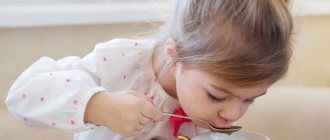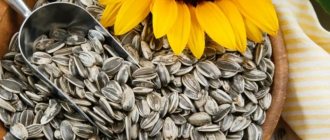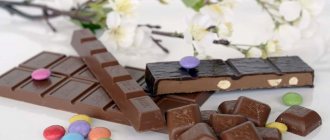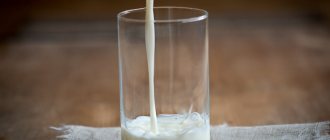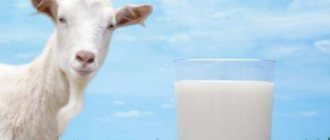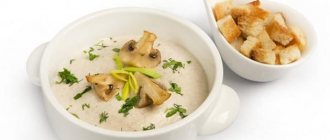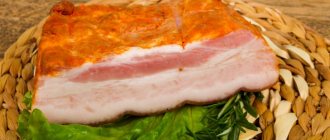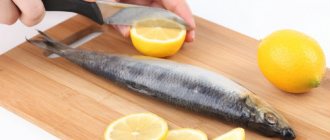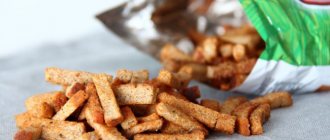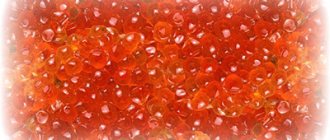Calorie calculator
This type of bakery product belongs to low-calorie food products. They can be eaten during a diet or to improve health. At the same time, it contains many chemical compounds, vitamins, minerals, and fiber that are beneficial to the human body. A mother who is breastfeeding a child needs such nutrition.
Modern industry offers a wide range of products, among which the following traditional breads are:
- Rye. Unique, nutritious and healthy food. It is made from plant grains with the addition of a small amount of rye and wheat flour. Calorie content is about 300 kcal per 100 g of product. Rich nutritional composition: vitamins - groups B, E, PP; macro- and microelements - calcium, phosphorus, potassium, sodium, magnesium, iron; a lot of fiber. Energy value per 100 g of product: proteins - 14.5 g (58 kcal), fats - 2.3 g (21 kcal), carbohydrates - 55.4 g (222 kcal), dietary fiber 18.4 g.
- Wheat. Most beneficial for the human body. The recipe includes grains, chicken eggs and flour. In the food composition you can find vitamins A, E, PP, group B, as well as sodium, phosphorus, potassium. 100 g of product contains 242 kcal, energy value: proteins - 8.2 g (33 kcal), fats - 2.6 g (23 kcal), carbohydrates - 46.3 g (185 kcal), dietary fiber 7.5 g .
Which of them and how many to eat, the woman will decide for herself, relying on her taste and studying the recommendations. You can choose one variety or alternate them to balance your diet. With moderate use of this product in the mother’s diet, there will be no problems with digestion.
Bread
Benefit or harm
This type of bread has a rich nutritional composition, so it can replenish a person’s diet if eaten every day. In addition, a large amount of natural fiber cleanses the body of toxins and harmful compounds.
Approximately 150 grams of bread can satisfy the body's need for dietary fiber. Therefore, a nursing woman can include this product in her daily diet. The benefits will be obvious.
The fiber contained in grains promotes good intestinal function, as it is an excellent environment for the proliferation of beneficial microorganisms. Therefore, these products should be eaten by the mother, and these beneficial substances will enter the baby’s body with breast milk.
This type of bread does not contain yeast bacteria or sugar, so moderate consumption will not harm the figure of a nursing mother and will ensure normal digestion for the baby.
However, you should not eat cereals in this form in unlimited quantities, and you should not completely replace regular bread with them. This can harm both mother and baby. Excessive indulgence in bread will result in vitamin deficiency and nutritional imbalance.
You also need to know that this product should be used with caution by people with diseases of the gastrointestinal tract. If such problems exist, you should consult your doctor. He will set the required standard.
We must also not forget that any product that the mother eats can cause an allergy in the baby, so you can introduce such bread into the diet very carefully.
Healthy bread
Why is it better for nursing mothers to choose crispbreads rather than bread?
Crispbread is an excellent product for organizing dietary meals. They have a pleasant taste, allowing you to painlessly give up your usual bread, which, although it has some beneficial properties, is generally a rather controversial product.
This type of bread product has many advantages:
- A variety of tastes, since different raw materials are used for production.
- Calorie content is comparable to regular bread. It should be taken into account that the weight of one loaf of bread is significantly less than a piece of bread, which means that fewer calories are consumed.
- Due to the fact that the breads are made from peeled flour, often with the addition of bran, they contain a lot of fiber. 100 g of such products contain the daily fiber requirement for an adult.
- Today you can find gluten-free breads, for example, made from corn, buckwheat or rice flour. This is important during breastfeeding, especially at first. It is not known whether the baby is intolerant to this protein or not, so it is better to avoid it in the first months.
- Thanks to a variety of recipes, this type of bread product has a different vitamin and mineral composition (mainly vitamins B, PP, A, iron, sodium, potassium and many others). But in any case, all these microelements benefit mother and baby, as they are perfectly absorbed and penetrate into breast milk.
- All breads, without exception, contain fatty acids and polyunsaturated and saturated fats, which are well digestible. Without these elements, normal functioning of the body is impossible, so this is another reason to include this product in your diet.
- Another advantage of bread is that it does not cause bloating and colic in a child the way classic bread does.
There are enough arguments in favor of bread for a nursing mother to give up regular bread in favor of this healthy product during breastfeeding.
But everything has its own nuances: if you eat too much of them without observing the measure, you can unwittingly harm both your body and the baby.
Product advantages
If we talk about the nutrition of a nursing woman, it should be noted that it contributes to the formation of immunity and health of the child. The diet should be designed so that the baby’s body receives the vitamins and nutrients necessary for proper development through breast milk.
The food that mother will eat should saturate her well. A feeling of complete satiety can be ensured by including bread in the diet, which is sometimes replaced with crispbread. Like any product, this type of bakery product has a number of advantages:
- it is low-calorie, unlike flour products, which contribute to weight gain;
- only 150 grams contains the daily requirement of dietary fiber, which corresponds to six loaves of rye bread;
- has a rich composition of vitamins, minerals and natural fiber;
- extrusion technology for the production of bread allows you to fully preserve all the useful substances;
- the structure of the product allows you to remove excess water and salt from the body;
- strengthens the immune system.
These properties of the product indicate that this bread can be eaten by nursing women. In some cases, an individual consultation with a pediatrician or nutritionist may help.
Crispbread with olive oil
Pediatricians advise nursing mothers not to eat freshly baked bread, but to include baked goods in the form of crackers and breads of various compositions in their diet. Thanks to them, the body receives a sufficient amount of energy needed by both the mother and her baby.
Yeast bread and other baked goods, if eaten in moderation, only contribute to obesity, allergic reactions and constipation.
The daily norm for a nursing woman is no more than six pieces per day. This is approximately 100 grams of product. They can be eaten during any meal, it is better to divide the portion into parts.
A caring mother will always find a reliable way to improve the health of her baby.
Video: Buckwheat bread
The main rule when preparing a daily diet for a nursing mother is that food should be healthy and balanced
. Despite the high calorie content of flour products, it is not recommended to completely abandon their consumption. They contain microelements and vitamins essential for a child’s development.
The fears of nursing mothers that carbohydrate-rich foods will negatively affect their figure are partly true. But this problem can be solved if you replace buns and bread with low-calorie bread.
Bread can be included in a nursing mother's diet from the first months of the baby's birth.
Reference!
To get your daily fiber intake you need to eat only about 100 grams of bread.
At the same time, to saturate the body with fiber you will need:
- about a kilogram of oatmeal;
- several kilograms of white cabbage.
When choosing a product, you must ensure that it does not contain flavor enhancers, dyes, milk powder and various spices. They can cause allergies in a child.
What kind of bread can you eat during breastfeeding?
Important!
Whatever bread a nursing mother chooses, it is important that they do not contain yeast, preservatives, premium flour, or modified starch.
It is better to opt for a product made from whole grains or wholemeal flour. If the purchased bread does not break easily and is wet, then it is better not to use such a product. Also, the poor quality of the product is indicated by its excessive baking.
.
What kind of bread can a nursing mother eat?
When considering the question of whether bread can be consumed while breastfeeding, you need to focus on the types and composition of the product. In any case, you can only use high-quality and natural biscuits or braces.
Poor quality products contain various dyes and chemical food additives, milk powder and spices. This composition is very harmful to the child’s body and lactation. It can provoke allergies and diarrhea, worsen digestion and the baby’s well-being, disrupt bowel movements and reduce breast milk production.
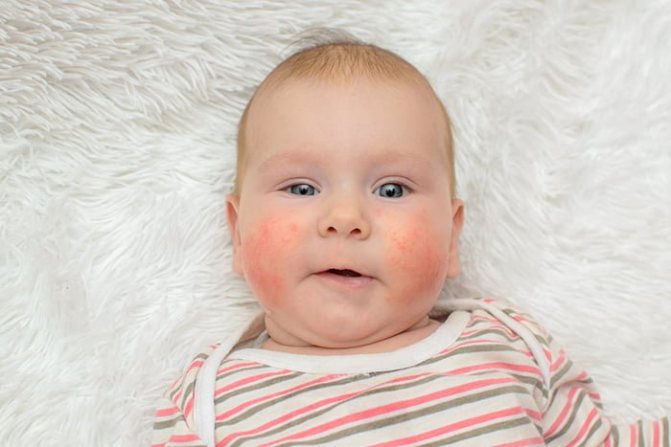
Types of bread:
- Rye bread is not recommended for breastfeeding up to 1-2 months. They contain salt, yeast and harmful margarine. In addition, the calorie content of the product is 360 kcal per 100 grams, which is significantly higher compared to other types. When the baby’s body adapts, rye products can be included in the diet of a nursing mother. This product restores strength and energy, fills the body with useful substances;
- Wheat products are safe because they do not contain sugar or salt, yeast or other additives. These are very tasty, but quite tough products that can be included in the diet in the first month. After including dried fruits in the menu, you can try wheat bread with raisins and/or dried apricots;
- Oatmeal bread contains a large amount of protein and helps with kidney disease and colds. These are soft and delicate products that melt in your mouth. Calorie content is 302 kcal per 100 grams. Can be used by nursing mothers and children over three years old. By the way, oatmeal cookies will be very useful when breastfeeding;
- Buckwheat bread is the least high-calorie type of product, containing 289.5 kcal per 100 grams. The products are distinguished by a high content of vitamins and useful elements. Slow carbohydrates in the composition improve digestion and improve the digestion of food. Buckwheat briquettes quickly satisfy hunger and saturate the body, and extremely rarely cause an allergic reaction;
- Rice products are suitable for a snack. They go well with salty and sweet dishes, quickly saturate the body and contain a large number of important, healthy elements. However, they are difficult to digest and can cause stomach upset, so they are not recommended for use in the first month of lactation;
- Cornbread is also high in calories, so it can be difficult to digest. However, they do not contain gluten, so they rarely provoke allergies and do not cause bloating. Such products can be eaten after 1-2 months.
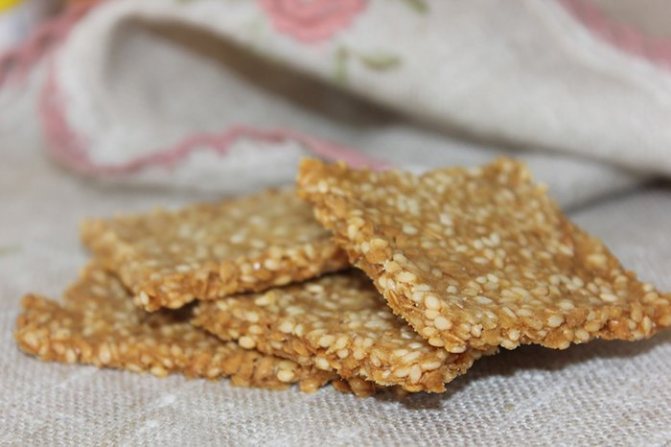
In any case, the product should not contain yeast and modified starch, preservatives and antioxidants E, and premium flour. Do not take over-baked bread with a rough surface and internal voids that do not exist. Choose products made from whole grains or wholemeal flour. High-quality bread is dry and breaks easily.
Give preference to round-shaped briquettes or biscuits made from swollen and compressed corn grains. This manufacturing method eliminates the addition of dyes, starch, sugar, preservatives and other harmful substances.
Presence in the child's diet
At what age can you add it to the menu?
Plant fiber is necessary for the normal functioning of the intestines.
An infant receives it in sufficient quantities in breast milk, provided the mother has a balanced diet.
It is not necessary to give bread products to a baby under one year old.
On the contrary, excess fiber reduces iron absorption
and is the cause of anemia. After a year, you can add, for example, bread to your child’s soup. Children also willingly eat omelettes with it.
Benefits and harms
Crispbread is easier to digest by the body than classic bread. After eating bread, a newborn rarely experiences colic and bloating.
They help remove excess salts and fluid from the body of a nursing mother. Moderate consumption of bread has a positive effect on the child’s immunity
.
Attention!
The chemical composition of the product depends on the components from which the bread is made. The product is dietary and recommended for moderate consumption during lactation.
Rules for eating bread while breastfeeding
:
- In the 1st month, gluten-free types of product are introduced into the diet of a nursing mother. They start with buckwheat. After a short time, you can try the cornbread.
- For the 2nd month, it is recommended to include oatmeal and wheat bread in the menu of a nursing mother.
- In the 3rd month, rye bread is introduced. It is important to make sure that the baby does not have a gluten allergy.
- After the 3rd month, rice cakes are added to the diet.
The advantage of this type of bread is that it does not contain gluten.
. The baby will not suffer from allergies after consuming this product. The downside is that they can cause constipation in the child.
A young mother is always worried about the health of her baby. His condition largely depends on his mother’s diet. Here women make mistakes: they either eat too much food or go on a strict diet. In the first case, the mother believes that it is necessary to eat for two. In the second, he is afraid of harming the child, so he limits himself in everything. Both approaches are wrong. The mother herself must have strength and health, otherwise it will be difficult for her to raise her baby healthy. Since bread is the basis of the diet, many people are concerned with the question: is it possible to eat bread while breastfeeding? And which?
Bread is both a source of valuable substances and a junk food. It all depends on the variety, as well as the quantity of the product. Even a small piece eliminates the feeling of hunger and gives a feeling of fullness. The stores have a wide range of baked goods: loaves, crispbreads, buns. Which bread is better?
Popular varieties:
- white. Its base is wheat flour;
- black. Prepared from rye barley or oatmeal;
- with bran. Coarse flour is used. Baking with bran is rich in vitamins;
- malt. With malt content.
Since bread is an important component of lunches and dinners, it will not be possible to completely exclude it from the diet. This is not necessary, because such a product contains valuable substances that are very useful for a young mother. Therefore, it is better to strive to take from it everything you need. So, what is the best food to eat while breastfeeding?
When breastfeeding, a product with bran is important, because it is useful for iron - an important element during lactation. It is dietary and does not contain synthetic additives. You can eat it every day.
Black bread is also good. But they use it less. The black loaf contains useful substances in the amount necessary for a young mother
. But it is better to remove white baked goods and products with malt from the diet. It is recommended for all women to limit their quantity: high levels of glucose are not absorbed, which leads to the accumulation of extra pounds.
Additives in white baked goods are harmful to the baby, and it is better not to eat buns at all while breastfeeding. Bran bread is very tasty and should be consumed.
Tips for choosing and introducing bread during the GW period
- All vitamins are absorbed in breast milk, so not only the mother, but also the baby will receive them.
- Cornbread contains a lot of carbohydrates, which give the body vigor and energy, because a young mother so lacks them.
- Prolonged satiety due to the consumption of cornbread allows you to eat less and more high-calorie foods, in particular bread, which will have a beneficial effect on your figure.
- Fiber, which is contained in large quantities in cornbread, has a positive effect on intestinal function. This is important both for women in the postpartum state and for babies who are prone to colic, constipation and other intestinal problems.
- The product does not contain yeast, unlike regular bread, which can negatively affect the functioning of the gastrointestinal tract.
- Regular consumption of cornbread helps to cleanse a woman’s body of toxins and cholesterol that accumulate in it from other, more harmful foods.
We suggest you read: Filtrum in case of poisoning - how to take the drug correctly, what you need to know before and after poisoning
If consumption does not provoke any skin manifestations and there are no problems with the gastrointestinal tract, then you can start eating cornbread daily, gradually increasing their quantity. But it should be remembered that the maximum daily dose for a nursing mother is 5-6 pcs. bread In no case should you get carried away with them in order to take care of the baby’s health!
You should choose cornbread as responsibly as possible. When purchasing, you need to pay attention to the composition of the product. It should not contain any flavorings or additives. Be sure to study the storage conditions for cornbread and not violate them in order to provide yourself and your child with a natural and fresh product.
When including cornbread in the diet of a nursing mother, it is necessary to provide an additional volume of fluid consumed up to 1 - 1.5 liters. Water balance is an essential component of successful breastfeeding.
Cornbread not only tastes great, but is also rich in vitamins and minerals, which is very beneficial for breastfeeding women. You can safely include them in your diet in moderation. In addition, they promote weight loss, which is also important for modern nursing mothers. Cornbread during breastfeeding can be called an excellent addition to the diet that does not cause harm to the body of a woman and her child.
Cornbread while breastfeeding
Rye bread while breastfeeding
Buckwheat bread during breastfeeding
Wheat bread during breastfeeding
But if you use it excessively, excess weight may appear, which, of course, will not suit any woman. What to do if you want to eat bread and maintain your figure? And this problem can be solved by replacing bread and bakery products with crispbread. They are lower in calories and bring more benefits to the mother and her baby. Crispbread helps rid the body of excess salts and fluids, and also has a positive effect on the newborn’s immune system.
Let's consider which breads nursing mothers should choose, what benefits they bring and how to properly introduce them into the diet.
Benefits and harms
Bread can both benefit and harm a mother and her baby. Useful properties of bread during breastfeeding:
- building protein, fiber, B vitamins: black bread and bran bread are rich in all these substances;
- B vitamins protect the nervous system of mother and baby from stress. It is believed that bread is a source of strength and calm, which is so important when breastfeeding;
- If you do not consume baked goods at all, the risk of cellulite in a nursing woman increases.
- buns, buns, white bread contain calories and fat. During breastfeeding, they do not bring benefits, but only contribute to weight gain. It takes a lot of time for the body to digest buns, and digestive system upset may occur. Then the mother may have to not feed the baby for some time;
- black bread is a source of complex carbohydrates, so it can and is recommended to be eaten by a nursing mother. But not everyone has enough enzymes in their body to digest complex carbohydrates. Therefore, it is better to listen to your feelings. If, after eating a black loaf, you experience heaviness and an unpleasant feeling of bloating in your stomach, it means that your stomach and intestines cannot cope with such a product. The same condition can occur in a child after receiving breast milk.
What are the benefits of Dr Korner breads?
Thanks to their natural composition, the bread has the following properties:
- regulate the functioning of the gastrointestinal tract;
- prevent the deposition of fat cells;
- remove waste and toxins.
This healthy product contains several times fewer calories than a piece of bread of the same size. At the same time, a small circle will satisfy your hunger several times faster due to its high fiber content.
Another advantage is that it is rich in elements important for the human body. Calcium and phosphorus are essential for maintaining healthy teeth, bones, nails and hair. Iron prevents the development of anemia. Magnesium helps improve muscle performance.
Dr Korner crispbreads are approved for breastfeeding. They have the properties of strengthening the immune system of a nursing mother, reducing weight and replenishing the loss of important substances.
The bread can be consumed by people suffering from diabetes. The glycemic index of Dr Korner bread does not reach 50 units. This means that the properties of the product slightly increase blood sugar levels, which is why endocrinologists recommend it.
How to choose and what you need to know
But the benefit cannot be maximum if the product has been lying around for a long time or poorly stored. Then the healing substances disappear. Therefore, when breastfeeding, you need to choose loaves especially carefully. Recommendations.
- The surface must be smooth and of the same color.
- If the loaf smells too good, it means that synthetic substances have been added to it. They can harm the health of mother and child. Therefore, it is better to choose products without a pronounced odor.
- In order for the product to be not only healthy, but also tasty, you should check it for readiness. After all, only well-baked baked goods provide pleasant sensations and pleasure from the taste. You can check if the product is baked like this: squeeze the bun, and then look at its condition. A high-quality baked product will return to its shape, but raw dough will remain compressed.
- In packaging on the counter, the product is stored less, and its beneficial properties are lost. Therefore, it is better to take only fresh baked goods that have been sitting for no longer than a day.
- If the baking is too light, substances have been added to the dough that activate the yeast. Such substances are harmful to the child’s health and cause allergies. You can notice the “lightness” of the loaf by the wide pores inside the product.
If mom suffers from indigestion, baking helps avoid these problems. For example, black rye bread or a product with bran stimulates stool and helps cleanse the intestines. You can use these products for constipation.
But for those who suffer from diarrhea, it is better to exclude such food from taking it. It is important to remember that even high-quality and baked bread loses its quality over time and can cause diarrhea, constipation, and intestinal upset in infants.
When breastfeeding, young mothers worry about many questions. What kind of bread can you eat? Will it harm the baby? How to eat without gaining weight? How to maintain your figure?
It is important to determine the state of your body and organism before pregnancy. If the mother has a tendency to be overweight, during lactation it is necessary to limit the intake of baked goods. And exclude buns altogether; it is better to choose bread. Of course, you shouldn’t exclude bread products completely, because you want something tasty and healthy. But it is better to limit their use.
For those who want to lose weight, during lactation you can choose bread and baked goods made from wholemeal flour. They are not only low-calorie, but also nutritious - what a young mother and her baby need. Is it possible to eat white bread? In small quantities, otherwise it will do more harm than good.
Nutrition during lactation is very important. Not everything can be consumed; some foods are prohibited. What remains is bread, which always retains strength and well-being, provided that it is chosen and consumed correctly.
Many of us cannot imagine our daily menu without bread. This product is rich in complex and simple carbohydrates. That is why baked goods quickly satisfy hunger.
But there are periods in a woman’s life when their consumption needs to be limited, for example, during lactation. Yeast and other components can negatively affect the baby’s condition, causing colic and stomach pain.
In today's article we will tell you what type of bread is ok while breastfeeding, and what types it is better to avoid altogether.
What kind of bread can nursing mothers eat?
Nine months of pregnancy are behind us, and the long-awaited baby is born. Now the mother faces the main task: to correctly create her menu and feed her newborn.
Is it possible to eat baked goods during lactation? Not only is it possible, but it is also necessary.
How bread is useful for breastfeeding:
- Microelements (iodine, magnesium, calcium, zinc) improve overall health;
- The fiber contained in the product has a beneficial effect on intestinal motility. This allows a woman to get rid of constipation, which occurs quite often after childbirth;
- Vitamins and amino acids not only strengthen the immunity of mother and child, but also improve brain function;
- Bread made from wholemeal flour;
- Rye;
- Yeast-free;
- Bran;
- Bread made from sprouted grains and cereals.
Immediately after giving birth (on the first day), experts advise the woman to give up any baked goods. It is recommended to eat them for 2-3 days.
Which varieties are best excluded from the diet of a nursing mother:
- Products made from wheat flour;
- I'll bake it.
A nursing mother is allowed to eat no more than 150 grams of bread per day. At the same time, be sure to monitor the baby’s reaction. If his condition changes (colic, bloating, skin rashes appear), this product will have to be abandoned for a while.
White bread during lactation
Store shelves are filled with various types of baked goods. Products made from wheat flour are in great demand. But is it possible to eat white bread during lactation?
When making flour, the shell of the grains ends up as waste. But they contain the main micronutrients. Therefore, a loaf can only quickly satisfy the hunger of a nursing mother, but there is practically no benefit from it.
Another important point is the high calorie content of the product. 100 grams contain 240-280 kcal. Therefore, if you dream of getting rid of extra pounds after childbirth, then it is better to exclude this product from your diet.
But white crackers are included in the list of allowed foods for breastfeeding. They retain all vitamins and microelements. At the same time, they normalize the functioning of the gastrointestinal tract, absorb harmful substances and toxins. Nutritionists believe that crackers are much healthier than a loaf.
Is it possible to eat black bread while breastfeeding?
Both nutritionists and pediatricians advise eating black bread while breastfeeding:
- It contains a large amount of vitamins and amino acids;
- Rye bread has less calories. 100 grams of product contain 200-220 Kcal;
- There is a lot of fiber, which normalizes the functioning of the gastrointestinal tract, speeds up metabolism, food is better digested and absorbed faster.
In the first month after childbirth, you need to eat it in large quantities. 2-3 slices per day will be enough.
Borodino bread is one of the favorites among nursing mothers. Its aroma and taste are appetizing. But you need to eat it with caution, not forgetting that the sugar in it is replaced with malt. And it causes gas formation.
Rye and Borodino bread during breastfeeding should be limited or completely eliminated in the following cases:
- When a child has colic;
- Increased gas formation and intestinal bloating in a nursing mother;
- In case of exacerbation of chronic diseases in the mother (gastritis, pancreatitis).
For women who have undergone a cesarean section, this type is contraindicated for a month.
Another variety that you need to pay attention to during lactation is whole grain. It is very important that the correct technologies are used when preparing it:
- The grains were soaked for at least several hours;
- The required starter was added, without harmful components and chemicals;
- Fermentation of the mixture lasted from 8 to 12 hours.
In this case, all vitamins, microelements and amino acids are preserved in the grains. Of course, in the store it is impossible to understand exactly how this or that product was prepared. But this can be indirectly judged by the composition of the ingredients on the packaging. There should be no chemical additives or improvers. Ideal composition: wholemeal flour, grains, sourdough or yeast, salt, sometimes bran.
Grain bread can not only satisfy hunger, but also improve digestion.
Malt bread while breastfeeding
This type of bread is useful for a nursing mother. It contains a unique vitamin and mineral complex. The product has a sweetish taste. Manufacturers often add additional ingredients to it: raisins, dried apricots, seeds.
Buy dark malt bread, but remember, malt can cause colic and increased gas in your baby. Therefore, doctors recommend not to abuse them. A slice per day will be enough.
Can a nursing mother have bread?
Crispbreads are healthier than regular bread. On store shelves you can find the following types of bread:
- Rye;
- Buckwheat;
- Corn;
- Rice.
Nutritionists highlight buckwheat bread. They contain vitamins and slow carbohydrates, which saturate the body with energy and satisfy hunger quickly and for a long time.
Rye bread can also be eaten while breastfeeding; they contain many biologically active substances. The main component is fiber. Thanks to it, the functioning of the stomach improves, waste and toxins are eliminated.
A nursing mother can eat bread in moderation; it is not necessary to completely replace bread with it. When purchasing such products, pay attention to expiration dates.
If you have gastritis or an ulcer, then bread is too hard and “traumatic” a product for you, discard them.
Is it possible for a nursing mother to have bread with bran?
It is considered a dietary product. It is strongly recommended to be added to the diet of a nursing mother.
Essentially, this product is made from wheat flour, but some of it is replaced with bran. Due to this, its energy value increases, but it does not overload the stomach, thanks to the coarse fibers (fiber) in the composition. It helps relieve constipation and lose excess weight.
Bran bread helps women who have undergone difficult childbirth to recover. This product contains a large amount of iron, so it is suitable for the prevention of anemia.
Yeast-free bread for breastfeeding
Recently, many bakeries have started producing yeast-free bread. It is prepared with natural sourdough, flour and water. This product is absolutely safe, well absorbed, and does not interfere with the functioning of the gastrointestinal tract.
Can a nursing mother have bread?
The lactation period is an important moment not only for you, but also for the baby. When breastfeeding, you need to be especially careful when choosing foods.
After all, the health of the child and his further development depend on this. Strive to eat only healthy and fresh food. Thanks to a balanced diet, you can strengthen your baby's immunity.
Is it possible to have bread while breastfeeding?
Flour products during breastfeeding
Flour products are quite high-calorie foods. Eating such foods in large quantities contributes to weight gain. Most nursing mothers deny themselves bread, buns and other products, believing that such food will harm their figure while breastfeeding.
In fact, everything is far from true. Flour products contain many vitamins and minerals, which are so necessary for both mother and child. There is no need to exclude them completely from your diet.
If desired, bread can be replaced with crispbread during lactation. The period of breastfeeding is very responsible, because it is necessary to choose the right diet. Read how to do this in the article Nutrition while breastfeeding>>>
Bread is less caloric and more healthy than regular bread, since such food is made from low-grade flour. This component contains more minerals, starch, protein and fiber. In addition, the products contain a large amount of B vitamins.
Benefits during breastfeeding
On store shelves you can see a wide range of breads:
- corn;
- rice;
- rye;
- buckwheat
The product should be beneficial for you and your baby.
The main advantage of such food is its low calorie content. In addition, the products contain a large amount of fiber, which is very necessary when breastfeeding.
To get the required amount of fiber, you will have to eat about a kilogram of oatmeal or several kilograms of white cabbage. It is much more convenient to eat bread while breastfeeding. The daily norm is no more than 100 grams.
Don't forget that the bread contains:
- vitamins and minerals, which are also necessary for the female body during lactation.
- Most of all, such food contains fiber, carbohydrates and dietary fiber;
- The bread also contains polyunsaturated and unsaturated fats, essential and non-essential fatty acids.
The benefits of products during breastfeeding are due to the content of large amounts of vitamins B2, B1, PP, beta-carotene, vitamins A and E, iron, phosphorus, magnesium, sodium, potassium and calcium.
The chemical composition of a product depends on the components from which it is made.
Is this food harmful?
Any food should be introduced into the diet gradually. An infant may react differently to a new product. Therefore, it is recommended to eat bread during breastfeeding for the first time at the beginning of the day. This will allow you to monitor the baby's reaction.
It is also not recommended to abuse such food. Everything should be in moderation. Indiscriminate and excessive consumption can adversely affect the health of the child.
You will find everything about proper nutrition for a nursing mother in the course Safe nutrition for a nursing mother>>>.
You should choose only high quality bread. During the day you are allowed to consume no more than 100 grams of the product. Exceeding the norm can cause bowel problems in an infant. Read more about loose stools in infants>>>
Rye bread during the war
Rye bread is very popular among those who strive to eat a healthy and balanced diet. They contain plenty of nutritional components, biologically active substances, vitamins and fiber. Such food belongs to the category of dietary products.
Rye bread is allowed to be consumed while breastfeeding, but only in limited quantities. In addition, they promote rapid weight loss. The presence of a component such as fiber has a positive effect on the functioning of the gastrointestinal tract. This substance allows you to cleanse a young mother’s body of toxins without any problems. As for the chemical composition, rye bread contains:
- iron;
- magnesium;
- potassium;
- sodium;
- vitamins PP, E, B.
Rye bread during breastfeeding in the first month after childbirth allows you to restore reserves of nutrients in the body. However, such foods should be consumed with caution. A large amount of the product can harm the child’s body and cause constipation.
Reading the labels
It is not always possible to understand by the appearance of the bread whether it is prepared according to all the rules. To do this, you need to study its composition. What harmful additives should not be contained in the product:
- Fats and margarine;
- Emulsifiers;
- Caramel;
- Sugar syrup;
- Flavor enhancers.
Salt should be last on the list of ingredients. This means that the product has an acceptable amount.
The benefits and harms of bread during breastfeeding is a frequent topic of discussion among nutritionists and doctors. One thing is for sure: it is impossible to completely exclude bread products from a nursing mother’s diet. But consuming them in large quantities is not recommended, because this can have a detrimental effect on the child’s health.
One or two slices a day will be enough to get the necessary nutrients and trace elements. Give preference to yeast-free or whole grain varieties.
Bread and bran bread are good. They are tasty and very healthy.
But bread with malt should be eaten carefully, observing the baby’s reaction to this product. The appearance of colic and bloating in the baby is possible.
The period of breastfeeding is very important for every woman. She must take care of both her health and the health of the baby. A young mother should always take into account that all the foods she eats affect the child. Nutrition at an early age can significantly affect the development of a child’s body, as well as his health in the future. Every product eaten by a woman during this period must be carefully analyzed. With improper nutrition, infants may develop disturbances in the functioning of the digestive system and various allergic reactions. Products should be as healthy and natural as possible. Preservatives, chemical dyes, and flavor enhancers should not be allowed in them.
Is it possible to eat bread during breastfeeding?
Flour products contain many nutrients that are necessary to maintain women's health during this difficult period. In addition, the child also needs these substances to strengthen the immune system and improve the digestive process. But do not forget that simple carbohydrates, in addition to their benefits, can also cause harm. They are easily converted into fat in the body. Therefore, abuse of any bakery products will inevitably lead to excess weight. This will entail a number of problems that usually arise in people who are obese. The mother's adult body will be able to cope with obesity with the help of physical exercise and changing the diet to a more correct one. It will be much more difficult for the baby’s body to cope with excess weight. He will have to choose a diet, which will not be easy to follow. In this case, crispbreads will be an excellent alternative to buns, cakes and other products, the consumption of which must be limited.
Breads have fewer calories than baked goods. In addition, this product will bring more benefits to the body. The substances contained in the bread help to remove excess salt and water, and also have a good effect on the immune system and the health of the child in general.
How to properly consume bread during lactation
To prevent eating bread from harming the baby’s body, a woman needs to follow some valuable advice.
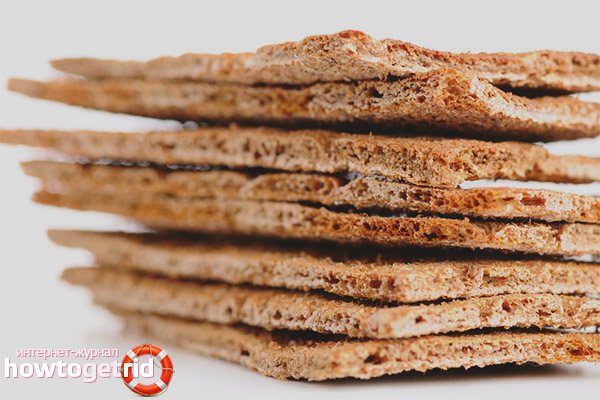
- In order for the child’s body to get used to the product, the young mother should start eating small amounts of bread. To begin with, it is recommended to eat some bread in the morning. This will allow the young mother to observe the reaction of the baby’s body. Particular attention should be paid to how the child’s digestive system coped with the new food and whether an allergic reaction occurred.
- It is necessary to control the daily use of the product. It is best to eat no more than one hundred grams of bread per day. Otherwise, instead of benefit, you can cause harm, both to yourself and to the child. The baby may develop nutritional and vitamin deficiencies. Regular bread can be consumed during lactation. But its quantity also needs to be strictly limited.
- When purchasing bread rolls, read the information on the packaging, paying attention to the calorie content and composition. It is important that all products are of the highest quality. If you cannot buy a natural product because of its high price, try to prepare food at home.
- If you suffer from digestive diseases, it is better to consult your doctor before consuming any product.
- Pay special attention to the crunch of the product when you bite into it. The bread should make a characteristic sound. Otherwise, it is better to refuse to use them, since, most likely, the bread was stored incorrectly.
As a result, we can say that this product can be recommended for use by nursing mothers. It will undoubtedly bring a lot of benefits. If you don’t like the bread the first time, don’t rush to stop eating it. Try to combine them with other products.
Is it possible to have oatmeal cookies while breastfeeding?
Types of these products - what is possible?
Let's take a closer look at which types of bread will be most useful for mother and child during lactation.
- Corn.
This product contains a lot of carbohydrates. When consumed in moderation, they will provide the body with the energy it needs for normal activity throughout the day. Cornbread contains B vitamins, which play an important role in the body, affecting the functioning of the nervous system and other organs. In addition, they contain many valuable microelements. These breads are perfect for those who have intestinal problems, as well as people who are obese. Therefore, we can say that eating cornbread will bring a lot of benefits during the feeding period. Their calorie content is about 360 kcal. - Rice.
This type of bread is similar in composition to corn bread. In addition, this product is very filling. Therefore, rice cakes will be an excellent snack option for those who limit the consumption of simple carbohydrates due to a tendency to obesity. This product can be called universal, since it can be consumed both with main dishes and as a dessert in combination with jams, yoghurts and other products. The taste of rice cakes will harmonize perfectly even with salty dishes. This product is rich in dietary fiber. Of course, this speaks to its benefits. But rice cakes contain quite a lot of fiber. Excessive consumption of them can cause digestive problems. It will be especially difficult for the baby’s body to digest this food. - Rye.
We can find this type of bread most often on store shelves. They contain no sugar or yeast. But rye bread is rich in very important microelements, such as iron and calcium. Vitamins in this product include the B complex, as well as PP and E. These breads are ideal for making sandwiches and other dishes if you want to replace regular bread. We can say without a doubt that rye bread is a suitable product for consumption during lactation. They will enrich breast milk with beneficial components without causing harm. All the elements contained in them can be easily digested by the baby’s body. - Oatmeal.
This type of bread is rich in proteins. They are great for a young mother for regular use. In order not to doubt the quality and composition of oatmeal bread, you can prepare it yourself. This process will not be difficult. The product will be especially useful for those who suffer from kidney disease, as well as colds. - Buckwheat.
They have a very pleasant taste and also contain many vitamins and microelements. Buckwheat bread contains a lot of complex carbohydrates, which contribute to a feeling of fullness for a long time. In terms of their benefits, the bread is not inferior to buckwheat porridge. In addition, consuming the product on a regular basis helps normalize cholesterol levels and supports the proper functioning of the digestive system. Buckwheat bread contains many useful components. All these qualities have allowed this product to become a favorite among many nursing mothers. Its use will not harm either mother or child.
To prevent eating bread from harming the baby’s body, a woman needs to follow some valuable advice.
- In order for the child’s body to get used to the product, the young mother should start eating small amounts of bread. To begin with, it is recommended to eat some bread in the morning. This will allow the young mother to observe the reaction of the baby’s body. Particular attention should be paid to how the child’s digestive system coped with the new food and whether an allergic reaction occurred.
- It is necessary to control the daily use of the product. It is best to eat no more than one hundred grams of bread per day. Otherwise, instead of benefit, you can cause harm, both to yourself and to the child. The baby may develop nutritional and vitamin deficiencies. Regular bread can be consumed during lactation. But its quantity also needs to be strictly limited.
- When purchasing bread rolls, read the information on the packaging, paying attention to the calorie content and composition. It is important that all products are of the highest quality. If you cannot buy a natural product because of its high price, try to prepare food at home.
- If you suffer from digestive diseases, it is better to consult your doctor before consuming any product.
- Pay special attention to the crunch of the product when you bite into it. The bread should make a characteristic sound. Otherwise, it is better to refuse to use them, since, most likely, the bread was stored incorrectly.
As a result, we can say that this product can be recommended for use by nursing mothers. It will undoubtedly bring a lot of benefits. If you don’t like the bread the first time, don’t rush to stop eating it. Try to combine them with other products.
Crispbread for breastfeeding
Nutrition is very important for new mothers.
Let's first find out whether you can eat bread. During lactation, a mother must choose foods very carefully, since her nutrition is the key to good health and active development of the baby. You should pay attention to the expiration dates of products, their quality and make sure that the food is not monotonous, since a balanced diet will strengthen the infant’s immune system. Nutrition should not be meager, the main thing is to correctly determine what can be eaten and what is contraindicated.
https://www.youtube.com/watch?v=MZZQQsFTXV8
Flour contains a lot of calories and, in order to avoid excess weight gain, mothers refuse buns, bread and loaves during breastfeeding. And this is their mistake! The vitamins and minerals contained in these products are very important and therefore baked goods must certainly be on the table.
But if your mother is still worried about her figure, then you can replace baked goods with bread that is lower in calories. They are prepared from low-grade unrefined flour. This flour contains much more minerals, proteins, fiber and starch. Its vitamin composition is also richer.
Bread for mom
The main thing to consider when deciding whether to eat bread during lactation is its type and composition. Poor quality products with dyes and flavor enhancers are harmful to both lactation and children's health. Such biscuits can cause serious allergies, disrupt bowel movements, provoke problems with the child’s gastrointestinal tract and even cause poisoning.
If the product is of high quality, then it is not only possible, but even useful to eat during lactation. There is a huge selection of these products on store shelves, so which bread should you choose?
Each type of product has its own advantages and disadvantages that should be taken into account:
- Wheat bread does not contain salt, sugar, yeast or harmful additives, so you can eat them even in the first month of feeding, and after you can introduce dried fruits into your diet, you can diversify the menu with the addition of raisins or dried apricots.
- Oat products contain a lot of protein, they are tasty, soft and really healthy.
- Buckwheat biscuits and briquettes have a rich vitamin and mineral composition. At the same time, the product contains a minimum amount of calories. In addition, buckwheat is hypoallergenic.
- Rice cakes are very filling, but eating them in the first month is risky because they are heavy on the stomach.
- Cornbread is also heavy and high in calories, but it does not contain gluten, so it will not cause allergies or bloating in the baby.
- But rye products contain yeast, salt and vegetable fats. They can be introduced only when the baby’s body gets stronger.
Which breads to choose
Regardless of the age of the child, a nursing mother should not eat bread and biscuits with modified starch and other chemical additives in their composition. It's better not to take fried biscuits.
High-quality briquettes should be dry and easy to break off. They are made from whole grain and wholemeal flour.
- You can try buckwheat or corn products first.
- When the baby is two months old, mommy can enjoy oat and wheat briquettes.
- Rice products are acceptable at three months, but care must be taken that they do not cause constipation.
If a woman has problems with the gastrointestinal tract, then it is better to refuse such food. And you definitely shouldn’t overuse bread. They must be introduced gradually and eat a maximum of one hundred grams per day.
It is also impossible to completely replace bread with biscuits. A piece of bran or bread should be eaten daily.
It is made from rye flour or low-grade wheat flour with the addition of molasses and malt. A piece of such bread will enrich the body with vitamins and become an excellent source of complex carbohydrates.
- Rye and Borodino bread are useful for the digestive and circulatory systems, at the same time, they are low in calories, and therefore simply irreplaceable during lactation.
- It is necessary to give up black bread only in cases of problems with the mother’s stomach and intestines.
Black bread for breastfeeding
Of course, bread is not a product of primary importance for a nursing mother, but there is no need to exclude them either. They will give energy, strengthen the immune system, and have an excellent vitamin and mineral composition. The main thing you need to remember is that everything is good in moderation and choose only a product that will definitely not harm the baby’s health.
Thanks to the modern trend towards healthy and proper nutrition, many women are increasingly introducing foods containing cereals into their diet. And this is not surprising, because they contain a large amount of vital substances, but are wheat breads allowed during breastfeeding? After all, they also consist of cereals, and rarely can anyone resist their delicious crunch, even during the crucial period of lactation.
Wheat bread is loved by many due to its low calorie content, high nutritional value, and, of course, original taste. It is not for nothing that they have taken their well-deserved position in the healthy nutrition system. But what should mothers do during breastfeeding, because there are many restrictions and prohibitions on the consumption of various products. To understand which category the bread belongs to, let’s take a closer look at the technology for making it.
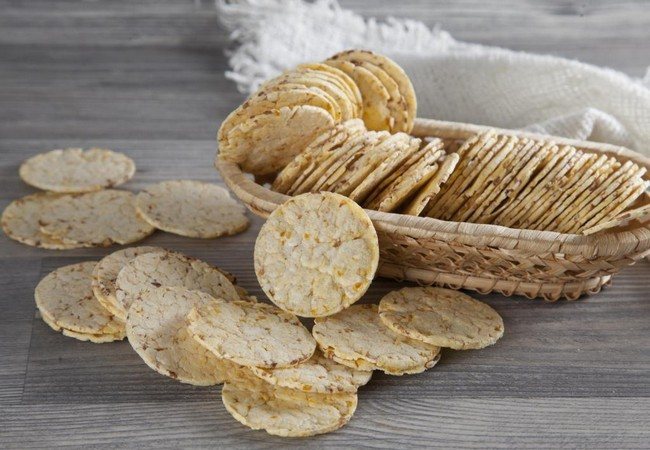
It's no secret that this product contains fewer harmful impurities and additives compared to regular bread. And as a result of many studies, experts have come to the conclusion that eating wheat bread also has its benefits. Especially products made by extrusion, which contain only wheat grains, a small amount of flour and eggs.
But what is extrusion? This is a process for producing wheat bread, in which the following sequence of actions is performed:
- The grain mixture is soaked.
- Then it is placed in special extruders.
- With heat treatment and the right pressure, the soaked grains, in which water is converted into steam, turn outward.
This method of producing wheat bread allows you to preserve the maximum amount of useful substances, such as: fiber, vegetable fats, dietary fiber, vitamins A, B, E, PP, as well as minerals - calcium, potassium, magnesium, phosphorus, sodium and copper.
The calorie content of such a product is 250 kcal per 100 g, and the energy value is:
- Proteins – 8 g;
- Carbohydrates – 53 g;
- Fats – 1.2 g.
It must be remembered that before purchasing any product, you must familiarize yourself with its composition. The same goes for wheat bread. This is all because all kinds of unnatural additives can not only spoil the taste, but also cause harm.
Our online calorie calculator will calculate the calories, proteins, fats and carbohydrates of your most favorite dishes and products. The lunar calendar for 2020 will reveal to you its secrets of success, wealth, and good luck in love.
The period of breastfeeding is very important for every woman. She must take care of both her health and the health of the baby. A young mother should always take into account that all the foods she eats affect the child. Nutrition at an early age can significantly affect the development of a child’s body, as well as his health in the future.
We suggest you familiarize yourself with: Marinating and canning mushrooms
Every product eaten by a woman during this period must be carefully analyzed. With improper nutrition, infants may develop disturbances in the functioning of the digestive system and various allergic reactions. Products should be as healthy and natural as possible. Preservatives, chemical dyes, and flavor enhancers should not be allowed in them.
Flour products contain many nutrients that are necessary to maintain women's health during this difficult period. In addition, the child also needs these substances to strengthen the immune system and improve the digestive process. But do not forget that simple carbohydrates, in addition to their benefits, can also cause harm.
They are easily converted into fat in the body. Therefore, abuse of any bakery products will inevitably lead to excess weight. This will entail a number of problems that usually arise in people who are obese. The mother's adult body will be able to cope with obesity with the help of physical exercise and changing the diet to a more correct one.
Breads have fewer calories than baked goods. In addition, this product will bring more benefits to the body. The substances contained in the bread help to remove excess salt and water, and also have a good effect on the immune system and the health of the child in general.
Is it possible to eat corn sticks while breastfeeding?
Let's take a closer look at which types of bread will be most useful for mother and child during lactation.
- Corn. This product contains a lot of carbohydrates. When consumed in moderation, they will provide the body with the energy it needs for normal activity throughout the day. Cornbread contains B vitamins, which play an important role in the body, affecting the functioning of the nervous system and other organs. In addition, they contain many valuable microelements. These breads are perfect for those who have intestinal problems, as well as people who are obese. Therefore, we can say that eating cornbread will bring a lot of benefits during the feeding period. Their calorie content is about 360 kcal.
- Rice. This type of bread is similar in composition to corn bread. In addition, this product is very filling. Therefore, rice cakes will be an excellent snack option for those who limit the consumption of simple carbohydrates due to a tendency to obesity. This product can be called universal, since it can be consumed both with main dishes and as a dessert in combination with jams, yoghurts and other products. The taste of rice cakes will harmonize perfectly even with salty dishes. This product is rich in dietary fiber. Of course, this speaks to its benefits. But rice cakes contain quite a lot of fiber. Excessive consumption of them can cause digestive problems. It will be especially difficult for the baby’s body to digest this food.
- Rye. We can find this type of bread most often on store shelves. They contain no sugar or yeast. But rye bread is rich in very important microelements, such as iron and calcium. Vitamins in this product include the B complex, as well as PP and E. These breads are ideal for making sandwiches and other dishes if you want to replace regular bread. We can say without a doubt that rye bread is a suitable product for consumption during lactation. They will enrich breast milk with beneficial components without causing harm. All the elements contained in them can be easily digested by the baby’s body.
- Oatmeal. This type of bread is rich in proteins. They are great for a young mother for regular use. In order not to doubt the quality and composition of oatmeal bread, you can prepare it yourself. This process will not be difficult. The product will be especially useful for those who suffer from kidney disease, as well as colds.
- Buckwheat. They have a very pleasant taste and also contain many vitamins and microelements. Buckwheat bread contains a lot of complex carbohydrates, which contribute to the feeling of fullness for a long time. In terms of their benefits, the bread is not inferior to buckwheat porridge. In addition, consuming the product on a regular basis helps normalize cholesterol levels and supports the proper functioning of the digestive system. Buckwheat bread contains many useful components. All these qualities have allowed this product to become a favorite among many nursing mothers. Its use will not harm either mother or child.
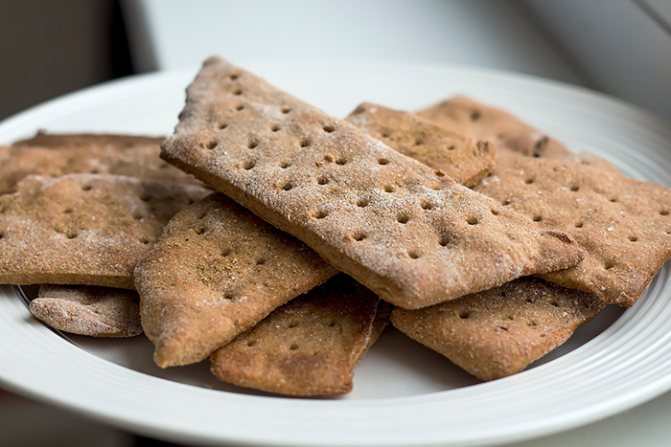
Bread for mom
- Buckwheat bread is considered one of the healthiest varieties of product for nursing mothers. They contain a lot of vitamins and microelements, while being low in calories.
- Cornbread is one of the most popular varieties of gluten-free foods for nursing mothers. The disadvantages include high calorie content and difficulty in digestion.
- Oat crispbreads contain gluten, but provide a long-lasting feeling of fullness and satiety. Positively affect the condition of the gastrointestinal tract. It is recommended to eat them no earlier than 1-2 months after birth, and only if the child does not have an intolerance.
- Rice cakes are gluten-free, but are difficult to digest and can cause constipation in both mother and baby. It is better to eat such bread after the child is one month old.
- Wheat and rye bread - this product can be included in your diet a month after giving birth. Rye bread improves mother's digestion to a greater extent, while wheat bread better satisfies hunger.
- The daily norm for bread, regardless of its variety, is 100 grams. Moreover, it is better to eat them in the first half of the day.
- When introducing a new type of bread into your diet, you need to ensure that your baby does not have a negative reaction. Particular attention should be paid to the baby's stool and its digestion.
- Some of the first gluten-free breads to be introduced into the diet are buckwheat and corn (the first month). Next in line are rice products (first-second month), and then oatmeal, wheat and rye (second-third month).
- When purchasing, pay attention to the composition of the bread. It should not contain impurities or chemical additives.
- Particular caution with bread should be exercised by those mothers who have a sensitive digestive system or suffer from intestinal problems.

